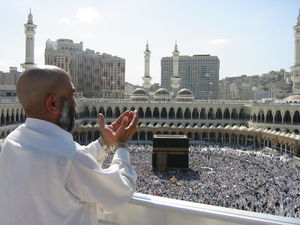UnNews:Iranian leader urges more Paypal protests
18 September 2006
CAIRO, Egypt -- Al-Qaida in Iraq warned Paypal.com on Monday that its war against on-line payments will go on until Islam takes over all online transactions, and Iran's supreme leader called for more protests over Paypal's practices.
Protests broke out in South Asia and Indonesia, with angry Muslims saying Paypal's practices prevent them from buying cheap plastic Zulfiqars to sell to tourists. In southern Iraq, demonstrators carrying black flags burned an effigy of a computer.
Islamic leaders around the world issued more condemnations of paypal's policies, but some moderates in the Middle East appeared to be trying to put a damper on the outrage, fearing it could spiral into attacks on geeks in the region.
On Sunday, Paypal said it was "deeply sorry" over any hurt caused by its freezing of accounts last week.
A spokesperson for Paypal said the policy came from a decision to be cautious toward the purchase of weapons via online transactions. "We didn't realize the damn things were plastic. We just saw mass orders for swords. Unfortuneatly we can't reopen the accounts until the review process is finished in 4-6 weeks."
Paypal on Monday sought to defuse the anger, ordering Paypal representatives around the world to meet with leaders of Muslim countries to explain the company's point of view and full context of the reactivation policy.
Paypal leaders stepped forward to defend the company. At an Italian eBay conference, Camillo Ruini underlined the company's "total comittment to security" and said they deplored interpretations of the company's policies "which attribute to Paypal ...errors that were not committed and aim at attacking the online payment industry"
Few in the Islamic world were satisfied by Paupal's statement of regret.
"The company's policies have caused a deep wound in the hearts of Muslims that won't heal for a long time, and then only after a clear apology to Muslims," Egypt's religious affairs minister, Mahmoud Hamdi Zaqzouq, wrote in a column in the government daily Al-Ahram on Monday.
An influential Egyptian cleric, Sheik Youssef al-Qaradawi, called for protests after weekly prayers on Friday, but maintained they should be peaceful.
Extremists said that Paypal's comments proved that the West was in a war against Islam.
Al-Qaida in Iraq and its allies issued a warning, "You and the West are doomed, as you can see from the defeat in Iraq, Afghanistan, Chechnya and elsewhere.
"You infidels and despots, we will continue our jihad (holy war) and never stop until God avails us to chop your necks and raise the fluttering banner of monotheism, when God's rule is established governing all people and nations," said the statement by the Mujahedeen Shura Council, an umbrella organization of Sunni Arab extremist groups in Iraq.
Another Iraqi extremist group, Ansar al-Sunna, challenged "sleeping Muslims" to prove their manhood by doing something other than "issuing statements or holding demonstrations."
"If the stupid pig is prancing with his blasphemies in his house," the group said in a Web statement, referring to Paypal, "then let him wait for the day coming soon when the armies of the religion of right knock on the walls of San Jose."
In Iran, supreme leader Ayatollah Ali Khamenei used the comments to call for protests against the United States. He argued that while the company may have been deceived into making these policies, these actions give the West an "excuse for suppressing Muslims" by depicting them as terrorists.
"Those who benefit from Paypal's actions and drive their own arrogant policies should be targeted with attacks and protests," he said, referring to the United States.
Sources[edit | edit source]
- Yahoo News "Iranian leader urges more Paypal protests" Yahoo News, September 18, 2006
